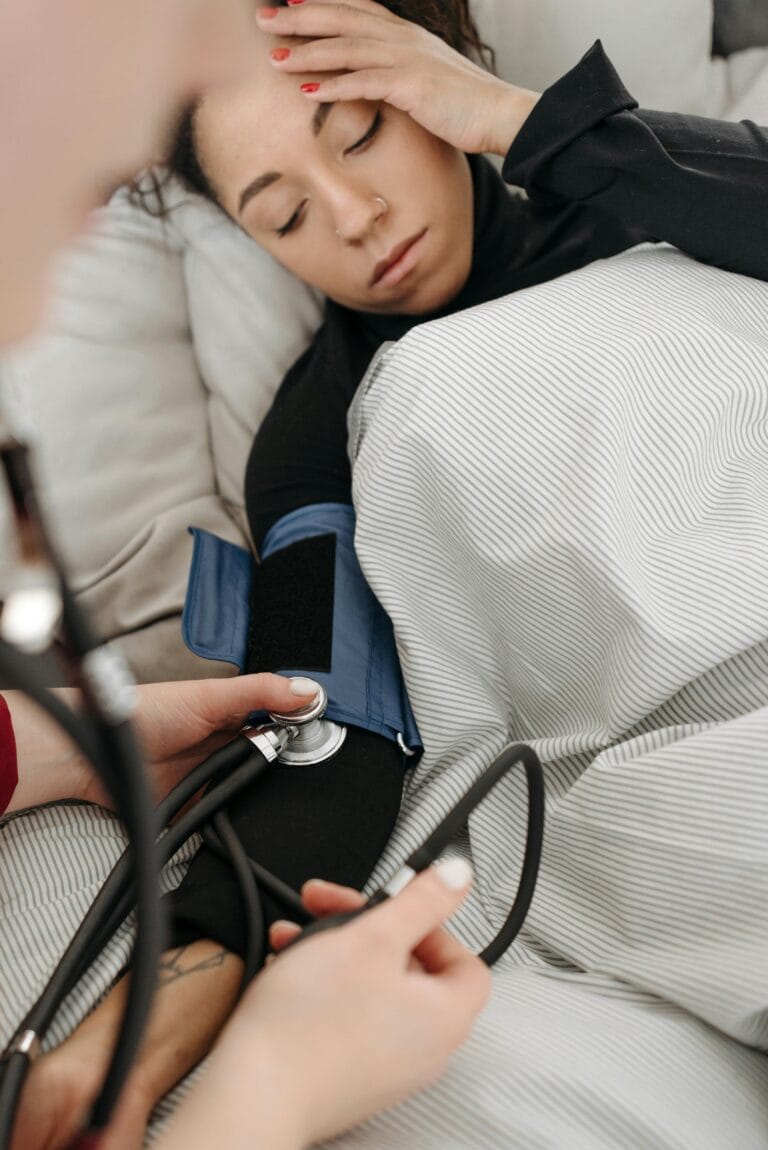FREE SHIPPING OVER $50
Over 50 and Can’t Sleep? The One Bedtime Mistake That Quietly Shrinks Your Brain

The clock on the nightstand seems to tick louder than usual. You’ve been in bed for hours, but your mind is still racing, scrolling through an endless mental to-do list. The frustration of being sleepless over 50 is a feeling many people know all too well. It’s a problem that goes far beyond just feeling groggy the next day. As we get older, poor sleep becomes a major concern for our longevity and, most importantly, our brain health.
You’ve probably heard all the standard advice: cut back on caffeine, avoid late-night meals, and try to relax. But there’s one insidious bedtime habit that many of us are guilty of, and it’s the single biggest culprit for disrupting our sleep. It’s so common and seems so harmless that most people don’t even realize the damage it’s doing. This one simple mistake is not only keeping you awake, but new research is showing that it can actually have a profound effect on the health of your brain.
The Bedtime Habit You Need to Stop Now
The one thing you absolutely must stop doing before bed is looking at your smartphone, tablet, or e-reader.
For many of us, scrolling through social media, reading the news, or catching up on emails is the last thing we do before we turn out the light. It’s a quiet, seemingly harmless habit that we use to wind down. But for your brain and your body, it’s like flipping a switch that says, “stay awake.” This nightly ritual is directly contributing to your inability to get a good night’s sleep, and the consequences for your longevity and cognitive function are far more serious than you might think.
The Science of Sleep and Why Blue Light is the Enemy
To understand why this habit is so destructive, you need to know a little about how your body works. Your body has an internal 24-hour clock called your circadian rhythm. This clock controls your sleep-wake cycle, and its most important regulator is light. As the sun sets, your body begins to produce a hormone called melatonin, which signals to your brain that it’s time to sleep.
The problem with screens is the specific type of light they emit: a high concentration of blue light. Your brain interprets this blue light as daylight. When you look at your phone late at night, you are effectively telling your body that the sun is still up. This suppresses your melatonin production and throws your circadian rhythm into a state of confusion. It makes it incredibly difficult for you to fall asleep, and even if you do, the quality of that sleep is often severely compromised.
How This Habit Quietly Shrinks Your Brain
The link between poor sleep and brain health is well-established, and it’s a critical concern for those of us over 50. Your brain doesn’t just “rest” when you sleep; it gets to work performing vital maintenance and cleanup. This process is essential for preventing cognitive decline and maintaining a sharp mind as you age.
- Hindering Brain Cleanup: During deep, restorative sleep, a remarkable system called the glymphatic system flushes out toxins and waste products from your brain, including a protein called amyloid-beta, which is strongly linked to Alzheimer’s disease. When your sleep is disrupted by blue light, you don’t get enough of this crucial deep sleep, and the cleanup process is hindered. Over time, this can lead to a buildup of harmful proteins and inflammation.
- Reduced Brain Volume: Research has shown that chronic poor sleep can lead to a reduction in brain volume, particularly in the frontal lobe, which is responsible for memory, decision-making, and other executive functions. This is a direct physical consequence of not getting the quality sleep your brain needs to repair and rejuvenate itself.
- Elevated Stress Hormones: The sleep deprivation caused by your phone also leads to an increase in cortisol, the body’s stress hormone. Chronically elevated cortisol levels can damage brain cells, especially in the hippocampus, a region critical for learning and memory. This creates a vicious cycle where poor sleep leads to stress, which further harms your sleep and your brain.
It’s Not Just Your Brain: Other Ways This Habit Harms Your Health
The negative effects of this bedtime habit don’t stop with your brain. This mistake can have a ripple effect on your entire body, undermining your efforts toward a long and healthy life.
- Metabolic Disruption: A lack of quality sleep has been linked to insulin resistance, making it harder for your body to manage blood sugar. This can increase your risk of developing type 2 diabetes.
- Weight Gain: Poor sleep can disrupt the hormones that control appetite, leading to an increase in cravings for high-carb, high-sugar foods. This makes it much harder to manage your weight.
- Mood and Mental Health: Sleep is essential for emotional regulation. Consistently poor sleep can lead to increased irritability, anxiety, and a higher risk of depression.
Breaking the Habit: A Step-by-Step Guide to Better Sleep Hygiene
The good news is that you have the power to change this. Breaking this habit is one of the most powerful things you can do for your longevity and brain health. Here’s a simple, actionable guide to reclaiming your night.
- Enforce a Digital Sunset: Establish a firm rule of no screens for at least 60-90 minutes before your bedtime. Put your phone on its charger, leave it in another room, or turn it off completely.
- Create a Sleep Sanctuary: Your bedroom should be for sleep and intimacy only. Make sure it is dark, cool, and quiet. Use blackout curtains, a fan, or a white noise machine to optimize your environment.
- Establish a Relaxing Routine: Create a calming ritual that signals to your body that it’s time to wind down. This could include reading a physical book, listening to soft music or a podcast, taking a warm bath, or doing some gentle stretching.
- Manage Your Light Exposure: In the evenings, use dim, warm-toned lighting in your home. This helps your body naturally begin its melatonin production.
- Be Consistent: Try to go to bed and wake up at the same time every day, even on weekends. This helps to regulate your circadian rhythm and reinforces your body’s natural sleep-wake cycle.
Making the Change for Your Longevity
The feeling of being over 50 and can’t sleep is a challenge, but it is not an irreversible fate. The solution is often found not in complex treatments, but in simple, mindful habits. By ditching your smartphone at night, you’re doing more than just trying to get a few extra hours of rest; you’re making a direct investment in the long-term health of your brain. You’re giving your mind the chance to cleanse itself, repair, and maintain the cognitive sharpness you need to enjoy a long, healthy, and fulfilling life. Take control of your evenings, protect your sleep, and you’ll be taking one of the most important steps toward securing your longevity.
Related Articles
- Don’t Miss These 5 Subtle Mini Stroke Symptoms (They Could Save Your Life)
- The Spanish Secret: Why They Live Longer Than Americans With Habits That Break All The Health Rules
- My Osteoporosis Breakthrough: I Reversed Bone Loss Naturally – Here’s My Exact Plan
- Chiropractor’s Secret: 5 Exercises That ERADICATED My Neck Hump & Fixed My Posture! (My Results)
- Defy Age: 4 Strength Workouts to Rebuild Muscle & Boost Vitality After 50







